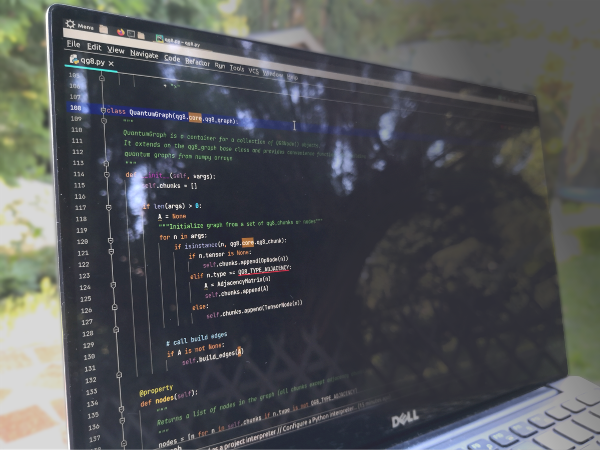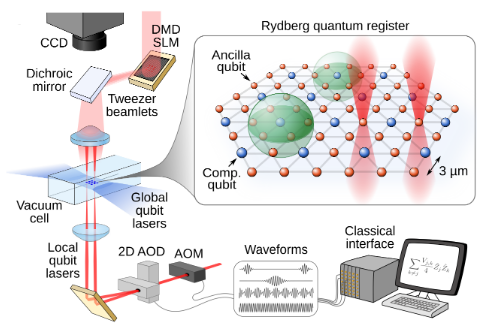Quantum simulation and quantum computing represent revolutionary ways to process information and to learn about our world. The basic idea is to prepare a set of quantum objects (e.g., atoms, ions, electrons, photons) in a well defined quantum state and to transform this state by making them interact in controlled ways, thereby overcoming the intrinsic limitations of classical devices when it comes to representing quantum states and their evolution. While this technology is still in its early days, quantum simulators and quantum computers are set to become indispensable tools for high-performance scientific computing and hybrid quantum-classical computing for many-body physics, quantum chemistry, material science, mathematics, optimization, machine learning, and presumably other, yet undiscovered applications.
In the EQM group we are developing quantum processors based on arrays of optically trapped atoms with interactions mediated by their Rydberg states.
More details about our work can be found in the following papers
Robust phase-controlled gates for scalable atomic quantum processors using optical standing waves published in Quantum
We put forward a simple scheme for realizing robust optically controlled quantum gates for scalable atomic quantum processors by driving the qubits with optical standing waves. Compared to existing strategies…
QG8 file specification and programmers reference
QG8 is a lightweight format for storing and exchanging numerical tensor data and data flow graphs in a binary format. It was created as way to store quantum models and…
Quantum simulation and computing with Rydberg-interacting qubits published in AVS Quantum Science (invited review)
Arrays of optically trapped atoms excited to Rydberg states have recently emerged as a competitive physical platform for quantum simulation and computing, where high-fidelity state preparation and readout, quantum logic…
Hundreds of microscopic atomic ensembles in optical tweezer arrays published in npj Q. Info.
Neutral atoms in optical tweezer arrays have recently emerged as one of the most versatile platforms for quantum many-body physics, quantum simulation and computation, where high quality qubits, fast quantum…
Unitary and non-unitary quantum cellular automata with Rydberg arrays published in PRL
We propose a physical platform for quantum information processing that is inherently parallelisable, does not require individual addressing and takes full advantage of both unitary and non-unitary multiqubit interactions. The…



